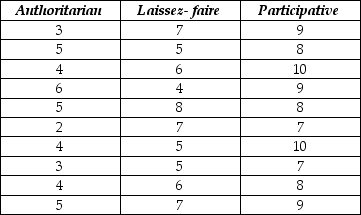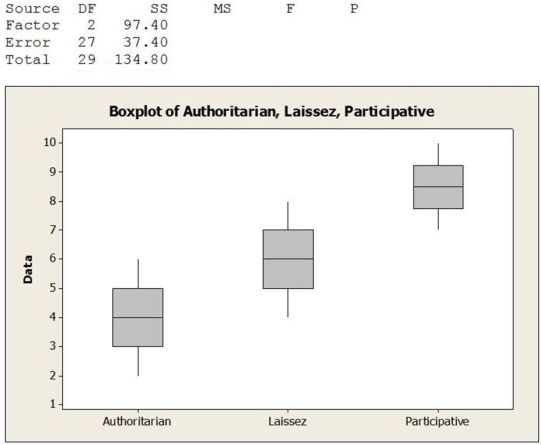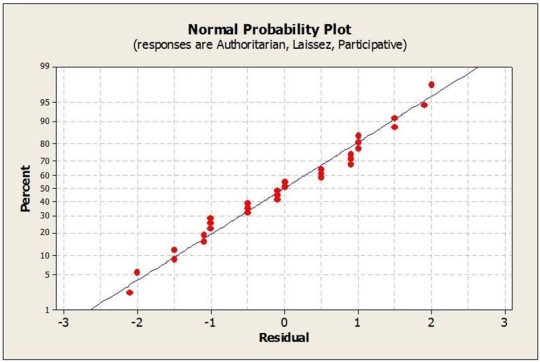Essay
Management styles differ among organizations and may potentially affect employee job satisfaction. A sample of employees was randomly selected from each of three companies with different management styles (Authoritarian, Laissez-faire and Participative) and asked to rate their level of job satisfaction on a 10-point scale (10 being the highest level of satisfaction). The data collected and partial ANOVA results appear below.


 a. What are the null and alternative hypotheses (in words, not symbols)?
a. What are the null and alternative hypotheses (in words, not symbols)?
b. Are the conditions / assumptions for ANOVA met?
c. Calculate the F-statistic.
d. The P-value for this statistic turns out to be < .001. State the conclusion.
e. Suppose that employees fall into several job categories, such as clerical, technical, or professional. How might this affect the study results? Suggest how the design for the study could have been improved.
Correct Answer:

Verified
a. H0: Mean employee job satisfaction ra...View Answer
Unlock this answer now
Get Access to more Verified Answers free of charge
Correct Answer:
Verified
View Answer
Unlock this answer now
Get Access to more Verified Answers free of charge
Q13: Consider the following to answer the question(s)
Q14: Consider the following to answer the question(s)
Q15: Consider the following to answer the question(s)
Q16: Consider the following to answer the question(s)
Q17: Consider the following to answer the question(s)
Q19: Consider the following to answer the question(s):<br>An
Q20: A health food company wants to determine
Q21: Consider the following to answer the question(s)
Q22: Consider the following to answer the question(s):<br>An
Q23: A survey of online consumers asked respondents